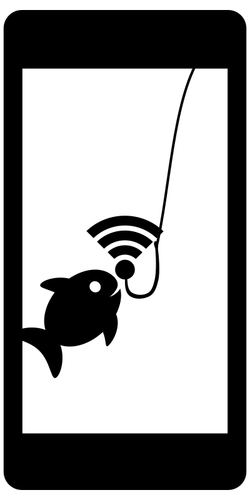Unveiling the Allure: A Comprehensive Guide to Casino Games and Strategies
The world of casinos, both brick-and-mortar and online, pulsates with an undeniable allure. The flashing lights, the clatter of chips, and the tantalizing possibility of striking it rich create an atmosphere that's both exciting and captivating. But beyond the glitz and glamour lies a complex ecosystem of games, strategies, and probabilities. Whether you're a seasoned gambler or a curious newcomer, understanding the intricacies of casino games is crucial for maximizing your enjoyment and minimizing potential losses. This comprehensive guide delves into the most popular casino games, exploring their rules, strategies, and odds, offering valuable insights to enhance your casino experience.
Understanding the Basics: Probability and House Edge
Before diving into specific games, it's essential to grasp two fundamental concepts: probability and house edge. Probability refers to the likelihood of a particular outcome occurring. In casino games, this is often expressed as odds, representing the ratio of unfavorable outcomes to favorable outcomes. The house edge, on the other hand, represents the casino's inherent advantage in a game. It's the percentage of each bet that the casino expects to win over the long run. Understanding the house edge is crucial for making informed decisions about which games to play and how to manage your bankroll.

For instance, a game with a low house edge offers better odds for the player, meaning you have a higher chance of winning, or at least prolonging your gameplay. Conversely, games with high house edges are more likely to result in losses for the player over time. Remember, the house edge is a statistical advantage that plays out over thousands of bets. In the short term, anything can happen, but in the long run, the house will always come out ahead.
Exploring the Classics: Table Games
Table games are the cornerstone of any casino, offering a diverse range of options that cater to different tastes and skill levels. From the strategic complexities of blackjack to the simple charm of roulette, table games provide a social and engaging casino experience.
Blackjack: Strategy and Skill
Blackjack, also known as 21, is a card game where players compete against the dealer to get a hand value as close to 21 as possible without exceeding it. Unlike many other casino games, blackjack involves a significant element of skill, as players can make decisions that influence the outcome of the game. These decisions include hitting (taking another card), standing (keeping the current hand), doubling down (doubling the bet and taking one more card), and splitting pairs (separating two cards of the same rank into two separate hands).
The optimal blackjack strategy, known as basic strategy, involves making the mathematically correct decision in every situation based on the player's hand and the dealer's up card. By following basic strategy, players can significantly reduce the house edge, making blackjack one of the most favorable casino games for skilled players. Card counting, a more advanced technique, involves keeping track of the cards that have been dealt to gain an even greater advantage. However, card counting is difficult to master and is often frowned upon by casinos.
Here's a simplified table outlining basic blackjack strategy:
| Your Hand | Dealer's Up Card (2-6) | Dealer's Up Card (7-Ace) |
|---|---|---|
| 12 | Stand | Hit |
| 13-16 | Stand | Hit |
| 17-21 | Stand | Stand |
| Ace, 7 | Stand | Hit |
Roulette: Chance and Wheel Spins
Roulette is a game of chance where players bet on which number a ball will land on a spinning wheel. The roulette wheel is divided into numbered pockets, ranging from 0 to 36 in European roulette and 0, 00, 1 to 36 in American roulette. Players can place various bets, including betting on a single number (straight up), a group of numbers (e.g., red/black, odd/even), or a specific section of the wheel.
The odds of winning in roulette vary depending on the type of bet placed. Straight-up bets have the lowest probability of winning but offer the highest payout. Outside bets, such as betting on red or black, have a higher probability of winning but offer lower payouts. The house edge in roulette is higher in American roulette due to the presence of the 00 pocket, which increases the casino's advantage. While there are betting systems that players employ, it is important to remember that each spin is independent and past results do not influence future outcomes. Roulette is ultimately a game of chance.
Baccarat: Elegance and Simplicity
Baccarat is a card game with a reputation for elegance and simplicity. In baccarat, players bet on either the "Player" hand or the "Banker" hand to have a value closest to 9. The game involves minimal decision-making for the player, as the dealer follows a set of rules to draw cards for each hand. The house edge in baccarat is relatively low, especially on the Banker bet, making it a popular choice for both casual and experienced gamblers. Some players try to identify patterns or trends, but as with Roulette, each hand is independent.
The Realm of Reels: Slot Machines
Slot machines are a ubiquitous presence in casinos, both online and offline. Their vibrant graphics, engaging sound effects, and the potential for large payouts make them a popular choice for many players. However, it's important to understand the mechanics and odds of slot machines before playing.
Understanding Paylines and Payouts
Slot machines operate using a random number generator (RNG), which ensures that each spin is completely random and independent of previous spins. Slot machines typically have multiple paylines, which are lines across the reels that determine winning combinations. Players can bet on multiple paylines to increase their chances of winning, but this also increases the cost per spin.
The payout percentage of a slot machine is the percentage of money that the machine is programmed to return to players over the long run. This percentage is typically displayed as the Return to Player (RTP) percentage. A higher RTP percentage indicates that the machine is more likely to pay out winnings over time. However, it's important to remember that the RTP percentage is a theoretical average, and individual results can vary significantly. Slot machines generally have a higher house edge compared to table games, making them less favorable for players in the long run.
Progressive Jackpots: The Dream of a Lifetime
Progressive jackpot slots offer the tantalizing possibility of winning a life-changing sum of money. A progressive jackpot is a jackpot that increases each time the game is played but the jackpot is not won. A portion of each bet is added to the jackpot, causing it to grow until a lucky player hits the winning combination. Progressive jackpots can reach millions of dollars, attracting players from around the world. However, the odds of winning a progressive jackpot are extremely low, making them a long shot even by casino standards. The RTP is typically very low on progressive jackpot slots, as the majority of the money is allocated towards fueling the rapidly growing jackpot. This can be a fun experience, but be aware of the lower RTP and less frequent wins.
Video Poker: Skill and Strategy on the Screen
Video poker is a popular casino game that combines elements of slot machines and poker. Players are dealt a hand of five cards and can choose to hold or discard any of the cards in an attempt to create a winning poker hand. The payouts are based on the strength of the hand, with higher-ranking hands paying out more.
Learning the Ranks and Optimal Play
Video poker involves a significant element of skill, as players can make decisions that influence the outcome of the game. The optimal video poker strategy involves making the mathematically correct decision in every situation based on the player's hand and the payout table. Different video poker variations have different payout tables, so it's important to understand the specific rules and strategy for each game.
Some variations of video poker, such as Jacks or Better, offer a relatively low house edge when played with optimal strategy, making them a favorable option for skilled players. By studying the payout tables and mastering the optimal strategy, players can significantly improve their chances of winning at video poker.
Online Casinos: A Digital Realm of Games
The rise of online casinos has transformed the gambling landscape, offering players the convenience of playing their favorite casino games from the comfort of their own homes. Online casinos offer a wide variety of games, including slots, table games, video poker, and live dealer games.
Bonuses, Promotions, and Security
Online casinos often offer bonuses and promotions to attract new players and reward loyal customers. These bonuses can include welcome bonuses, deposit bonuses, free spins, and cashback offers. However, it's important to read the terms and conditions of these bonuses carefully, as they often come with wagering requirements that must be met before the bonus funds can be withdrawn.
When choosing an online casino, it's crucial to ensure that the casino is licensed and regulated by a reputable authority. This ensures that the casino operates fairly and that player funds are protected. It's also important to check the casino's security measures to ensure that your personal and financial information is secure. Look for casinos that use encryption technology to protect data and that have a strong reputation for security.
Live Dealer Games: Bridging the Gap
Live dealer games offer a more immersive and realistic online casino experience. In live dealer games, players interact with a real dealer via live video stream. Players can place bets [address here] and communicate with the dealer and other players in real-time, creating a social and engaging atmosphere that closely resembles a brick-and-mortar casino.
Responsible Gambling: A Guiding Principle
Gambling can be an enjoyable and entertaining activity, but it's important to gamble responsibly. Responsible gambling involves setting limits on your time and money, understanding the odds of winning, and recognizing the signs of problem gambling.
Setting Limits and Recognizing Signs
Before you start gambling, set a budget for how much you're willing to spend and stick to it. Avoid chasing losses, as this can quickly lead to financial problems. It's also important to set a time limit for your gambling sessions. Take breaks regularly and avoid gambling when you're feeling stressed, depressed, or under the influence of alcohol or drugs.
Recognizing the signs of problem gambling is crucial for preventing it from developing into a serious addiction. These signs can include gambling more frequently than intended, spending more money than you can afford, neglecting your responsibilities, lying to others about your gambling, and experiencing withdrawal symptoms when you try to stop gambling.
Seeking Help and Resources
If you think you may have a gambling problem, it's important to seek help from a qualified professional. There are many resources available to help people overcome gambling addiction, including therapy, support groups, and self-help programs. Remember, you're not alone, and help is available.

Here are some resources that can help:
- National Council on Problem Gambling: https://www.ncpgambling.org/
- Gamblers Anonymous: https://www.gamblersanonymous.org/
Conclusion: Embracing the Casino Experience Responsibly
The world of casinos offers a diverse and exciting range of games and experiences. By understanding the rules, strategies, and odds of different games, you can enhance your enjoyment and minimize your potential losses. Whether you prefer the strategic complexities of blackjack, the simple charm of roulette, or the vibrant appeal of slot machines, there's a casino game out there for everyone. However, it's crucial to remember to gamble responsibly, setting limits, understanding the risks, and seeking help if you think you may have a problem. By embracing responsible gambling practices, you can ensure that your casino experience remains a fun and entertaining pastime.

























